The Caribbean region, renowned for its pristine beaches, vibrant cultures, and breathtaking landscapes, is also home to a group of countries that have demonstrated exceptional political stability. These politically stable Caribbean nations stand as beacons of effective governance, providing their citizens with an environment of continuity, security, and progress. Conversely, political instability can wreak havoc on a country, impeding its economic growth, undermining social cohesion, and hindering overall prosperity.
Fortunately, within the Caribbean, several countries have managed to establish and maintain political stability. These nations have implemented effective governance practices, nurtured democratic institutions, and upheld the rule of law. By promoting transparency, accountability, and inclusive political processes, they have fostered an environment of trust and continuity within their political systems.
So in today’s video, we will highlight this political stability and go through the Ten most politically stable countries in the Caribbean.
About the Ranking
Before we get started, we must first ask ourselves, what does political stability mean, and how do we measure it? Measuring political stability is a complex task that requires the evaluation of various indicators and factors. Several approaches can be employed to assess political stability. Commonly, indexes incorporate various factors such as the frequency and intensity of political events, evaluating the strength and effectiveness of government institutions, including the rule of law, democratic processes, and the level of corruption, and even socioeconomic factors such as poverty rates, unemployment rates, and income inequality.
In today’s ranking, we will draw on the Worldwide Governance Indicators (WGI) index, by the World Bank. The index references aggregate and individual governance indicators for over 200 countries and territories and has six dimensions of measurement. These are 1) Voice and Accountability, 2) Political Stability and Absence of Violence/Terrorism, 3) Government Effectiveness, 4) Regulatory Quality, 5) the Rule of Law, and finally 6) Control of Corruption.
These aggregate indicators combine the views of a large number of enterprise, citizen and expert survey respondents in industrial and developing countries. They are based on over 30 individual data sources produced by a variety of survey institutes, think tanks, non-governmental organizations, international organizations, and private sector firms. Countries are ranked on their political stability from negative -2.5 which is weak to positive 2.5 or strong. The average for 2021 based on 194 countries was -0.07 points, with the highest value being Liechtenstein with 1.64 points and the lowest value being Somalia: -2.68 points.
So as you can see, it is a truly substantial and comprehensive index. If you would like to read more about its methodology, we have left links to the sources in the description below.
Puerto Rico

Photo by Ethan Jameson on Unsplash
Starting our list in the number 10 spot, we have the US territory of Puerto Rico. Political stability in Puerto Rico has been a subject of both achievements and challenges. As an unincorporated territory of the United States, Puerto Rico’s political stability is influenced by its relationship with the federal government. The island has a stable democratic system with elected representatives, and political transitions have generally occurred peacefully.
However, Puerto Rico has faced economic and governance challenges in recent years, leading to some political instability. Issues such as high public debt, economic recession, and disputes over the territory’s status have contributed to political tensions and social unrest. Efforts to address these challenges and foster stability continue, with a focus on economic recovery, transparency, and accountability in governance. Despite the obstacles, Puerto Rico’s commitment to democracy and its ongoing efforts to address political and economic challenges demonstrate the resilience and determination of its people in pursuit of political stability and progress. But with a score of 0.51, it already beats the average in the world.
Saint Lucia
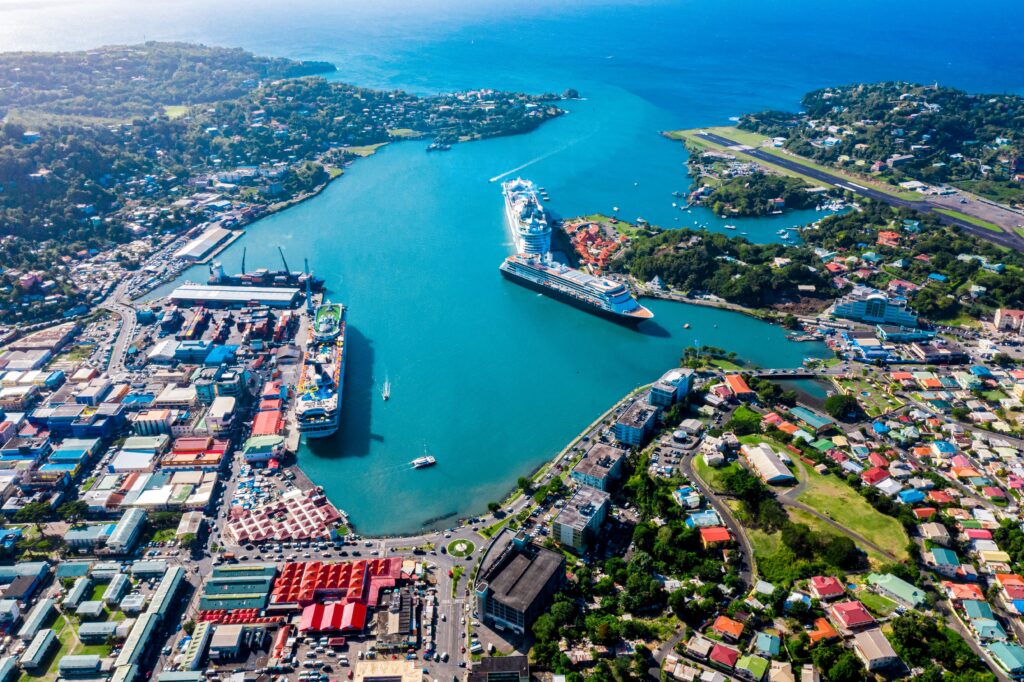
Photo by Omar Eagle-Clarke on Unsplash
Next in our number 9 spot, we have the small gem of St. Lucia. St. Lucia, the small island nation in the Lesser Antilles, has established a notable level of political stability. The country has a robust democratic system, with regular elections and peaceful transitions of power. St. Lucia has a long history of political stability, characterized by a strong rule of law, respect for human rights, and a well-functioning judiciary. The government has demonstrated a commitment to good governance, transparency, and accountability, which have contributed to the maintenance of political stability.
Additionally, St. Lucia’s leaders have prioritized social cohesion and inclusive policies, fostering a sense of unity and trust among its diverse population. Despite occasional policy debates and challenges typical of any democracy, St. Lucia’s political stability has provided a solid foundation for economic growth, social progress, and the overall well-being of its citizens. With all that being said, therefore, it is no surprise then that St. Lucia is quite ahead of Puerto Rico with a score of 0.85.
Bahamas

Photo by Georgy Trofimov on Unsplash
Coming in at our number 8 spot, we have one of the biggest economies in the Caribbean, and one of its most travelled destinations, The Bahamas. The Bahamas, again like much of the Caribbean has a long-standing tradition of democracy, with regular free and fair elections. Political transitions have been peaceful, and the rule of law is respected and upheld. The Bahamas has established strong institutions and a robust legal framework, ensuring the protection of civil liberties and human rights.
With a value of 0.88, it just edges out St. Lucia, as the country is considered in a better position economically, supported by a thriving tourism industry and prudent economic policies. The combination of political stability, economic resilience, and a commitment to democratic principles has enabled the Bahamas to foster a secure and prosperous environment for its citizens and attract investment from both domestic and international sources.
Antigua and Barbuda
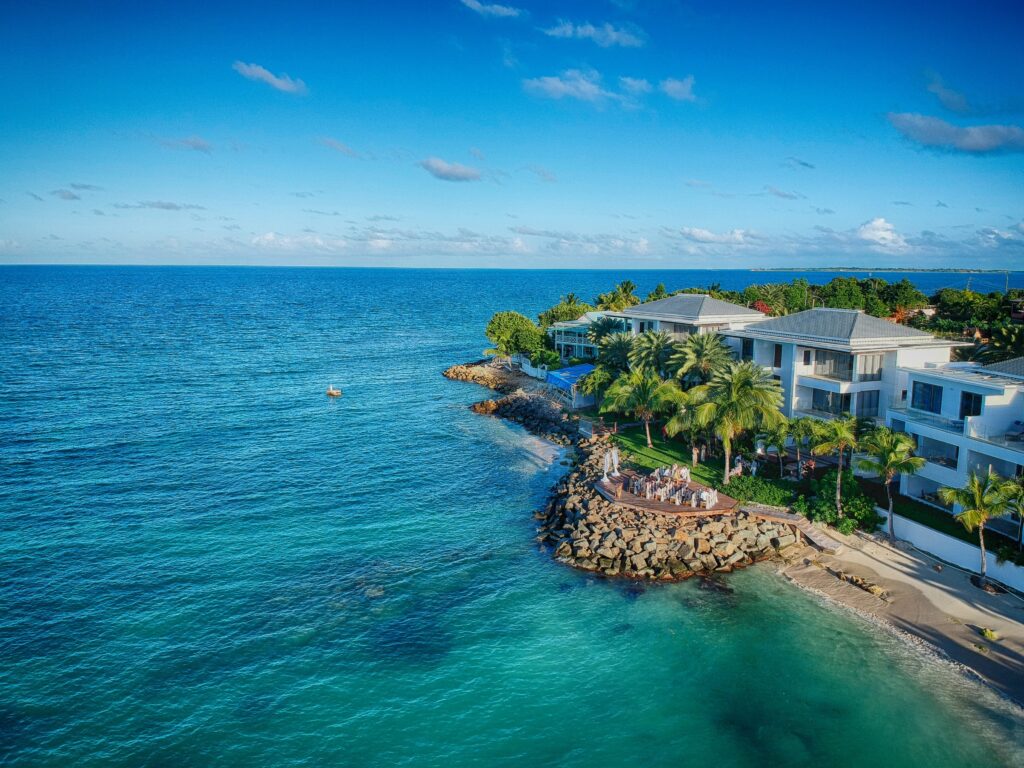
Photo by Alec Brunelle on Unsplash
Next up, we have the twin-island nation of Antigua and Barbuda, which has demonstrated commendable political stability. The nation’s democratic systems are strong which can be seen with regular elections and peaceful transitions of power. Political stability in Antigua and Barbuda is bolstered by a strong rule of law, an independent judiciary, and a commitment to upholding human rights and civil liberties.
Additionally, Antigua and Barbuda have a diversified economy with sectors such as tourism, financial services, and agriculture, which contribute to its economic stability. With all of these positives, Antigua and Barbuda moves up the ranking with a score of 0.96 points.
Bermuda
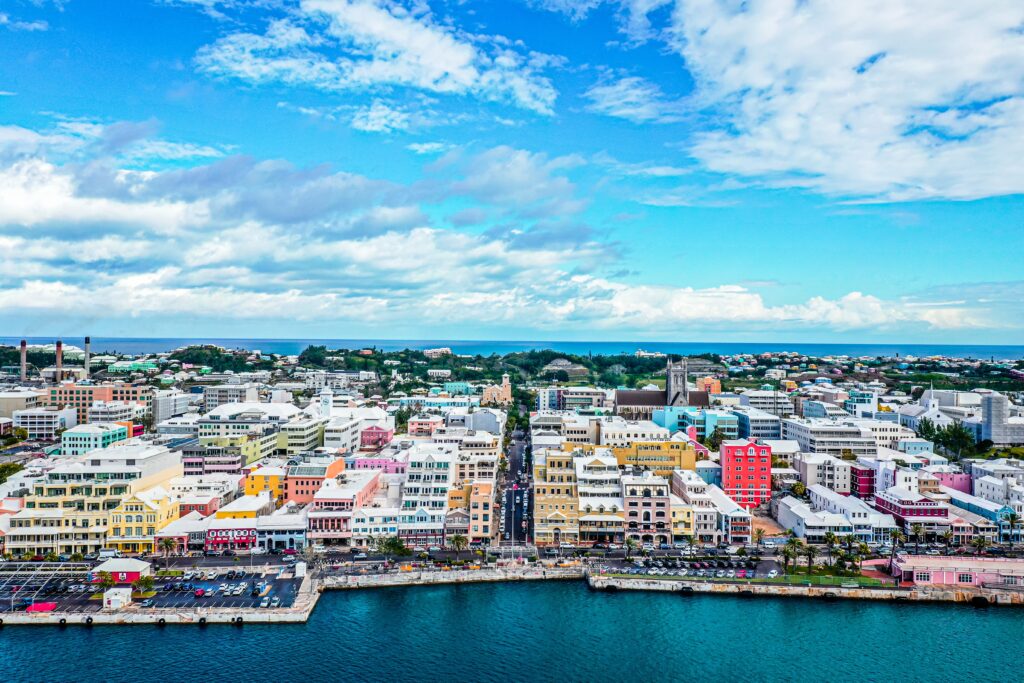
Moving on smartly, we come to another territory, but this time a British Overseas Territory in the North Atlantic Ocean. That’s right, Bermuda comes in at number 6 on our list and is the first country on our list to score over 1, with a score of 1.01 points. Bermuda has shown remarkable political stability for such a small country, and operates under a parliamentary democracy, with regular elections and peaceful transitions of power.
Bermuda places a strong emphasis on things such as education, healthcare, and social welfare, ensuring the well-being of its citizens. This is bolstered by the country’s political connection to the United Kingdom, whose strong political institutions are integrated into the country’s society.
Grenada
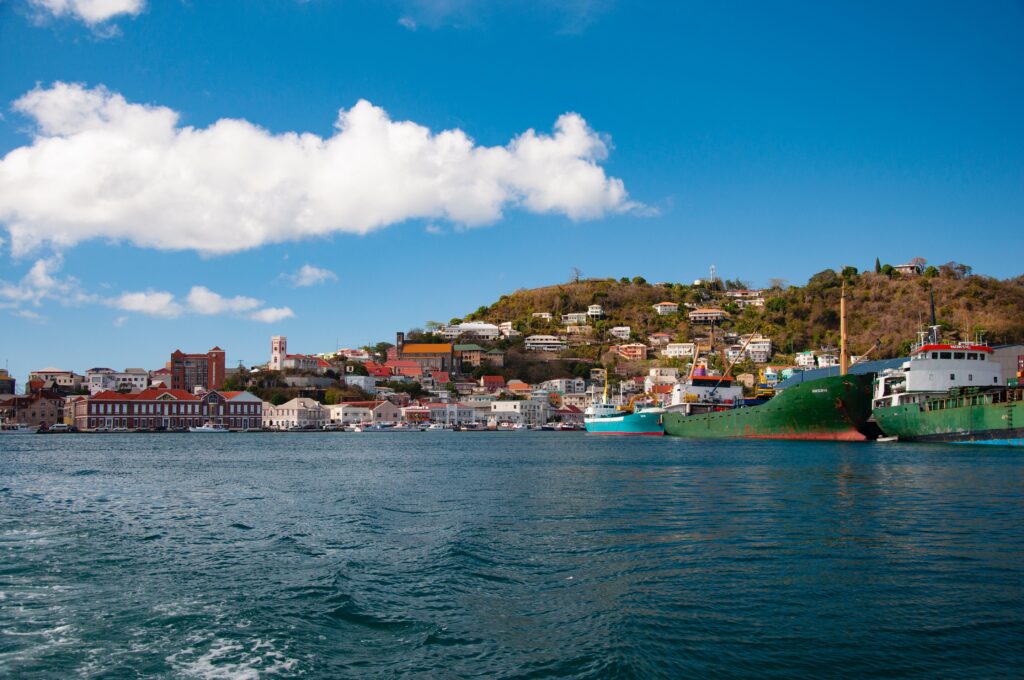
Photo by Elaine Brewer on Unsplash
As we break into the top half of our list, we have a tie for the 4th place as two countries have a 1.04 score. Our first country in the number 5 spot is Grenada, a small island nation which has made significant strides in achieving political stability. In the late 70s to early 80s, Grenada was experiencing a revolution led by Maurice Bishop, which aimed to establish a socialist government and address social and economic inequalities in Grenada. This was eventually quelled by the United States which intervened in the revolution.
Since then Grenada has seen little political instability and has built a strong foundation of good governance, transparency, and accountability. Additionally, the country has made notable progress in economic development, with a focus on diversification and sustainable growth. Efforts to attract foreign investment, promote tourism, and develop key sectors like agriculture and renewable energy have contributed to the overall stability of the economy.
St. Vincent and the Grenadines
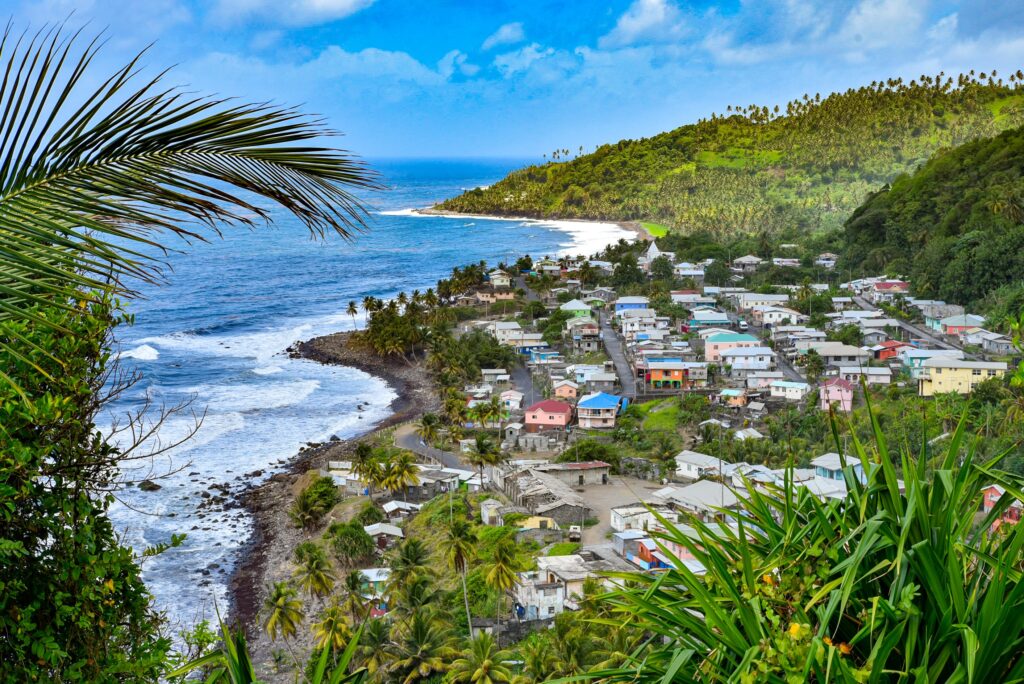
Photo by Ernie A. Stephens on Unsplash
So what is the other country tied for 4th place, well it is none other than St. Vincent and the Grenadines. St. Vincent and the Grenadines has established itself as a politically stable nation in the Caribbean and has a score on the political stability index of 1.04. The government’s dedication to democratic principles and institutions has fostered an environment of political stability.
There is no notable conflict threat to St. Vincent and the Grenadines, nor is one expected to develop. Corruption in the country is considered to be low to moderate both in terms of regional standards and also broader global standards. The rule of law is considered strong and the country is not plagued by sanctions, which can be a major hurdle for some Caribbean countries.
Barbados
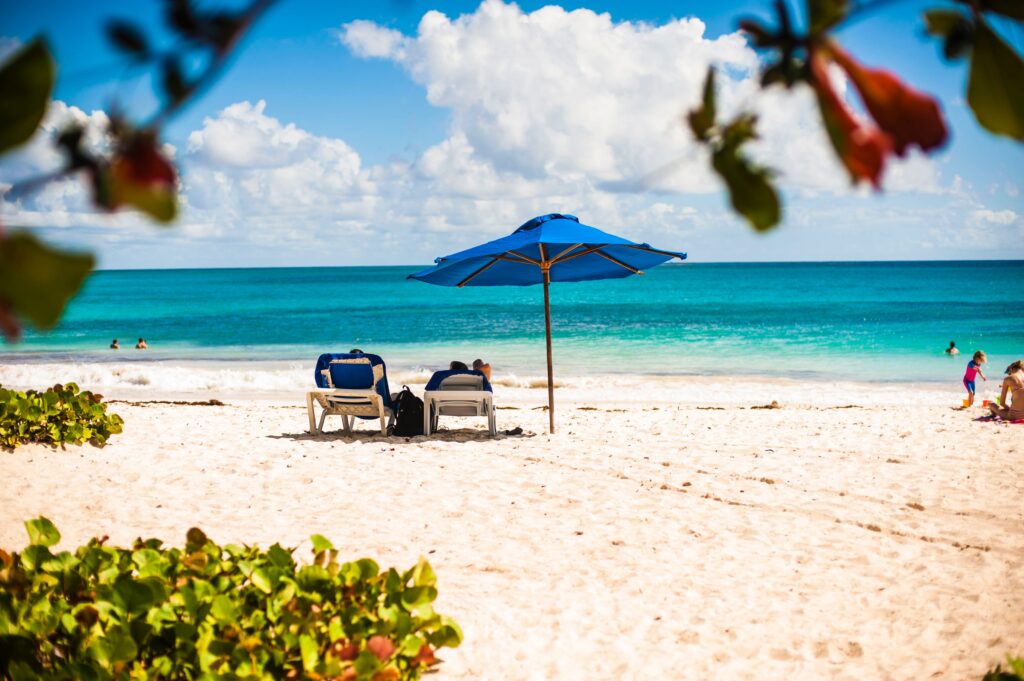
As we come to our top three countries, taking the bronze is Barbados, which stands out as a shining example of political stability in the Caribbean. The country has a long history of democratic governance, with peaceful transitions of power and a robust system of checks and balances. Barbados scores a remarkable 1.12, on the political stability index. The people of Barbados consistently promote social cohesion and inclusive policies, ensuring the well-being of its citizens.
The country has also achieved remarkable economic stability, with a resilient economy that relies on sectors such as tourism and international business. Barbados has also seen strong leadership in recent years, with its current Prime Minister Mia Amor Mottley being hailed as a revolutionary leader both on the local political stage and also the global stage. Named among Times 100 most influential peoples list in 2022, Mia Mottley has become a champion for developing nations and a staunch advocate of climate justice.
Dominica
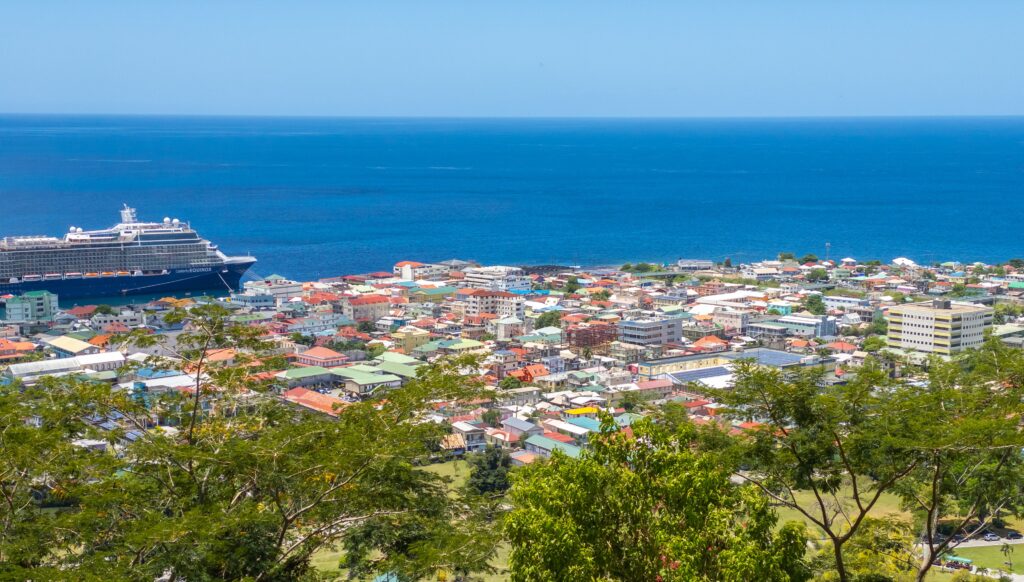
Photo by Nario Esprit on Unsplash
Taking our silver place, we have the small but naturally untouched beauty that is Dominica. With a political stability score of 1.39, Dominica has demonstrated commendable political stability within the Caribbean region. In the words of the World Bank, the “government has shown a commitment to good governance, transparency, and accountability, fostering an environment of political stability.”
Additionally, Dominica has prioritized sustainable development, placing a strong emphasis on environmental conservation and renewable energy initiatives, to maintain the natural beauty the country is known for. Through its sustained political stability, Dominica has provided a solid foundation for economic growth, social progress, and resilience in the face of natural challenges.
Aruba

Photo by Lex Melony on Unsplash
And finally, we come to our number 1 spot, the most politically stable country in the Caribbean, Aruba. With a remarkable score of 1.47, Aruba is considered to be the 4th most politically stable country in the world, among countries like Singapore and New Zealand. Aruba is a constituent country within the Kingdom of the Netherlands, which some state has helped to establish a notable level of political stability.
The country even though it is connected to the Netherlands, still operates under its parliamentary democracy, with regular elections and peaceful transitions of power. Aruba upholds the rule of law and is known for its strong judicial systems which ensure the protection of civil liberties and the human rights of its citizens.
Additionally, Aruba has focused on economic diversification and sustainability, with tourism being a vital sector. The government’s emphasis on social welfare, education, and healthcare has contributed to the overall well-being of its citizens. So great job for Aruba!
Conclusion
In conclusion, the Caribbean region is home to several politically stable countries that have demonstrated a commitment to good governance, transparency, and accountability. In reality, most countries in the Caribbean and all the ones on this list are considered to be politically stable. These nations have established strong democratic systems with regular elections, peaceful transitions of power, and respect for the rule of law.
By fostering political stability, these countries have created an environment conducive to economic growth, social progress, and the overall well-being of their citizens. They have attracted investments, developed sustainable industries, and prioritized social development, education, and healthcare. However, it is important to recognize that political stability requires continuous effort. Efforts in addressing challenges such as socioeconomic disparities, corruption, and governance issues, and efforts in holding those in power accountable.


